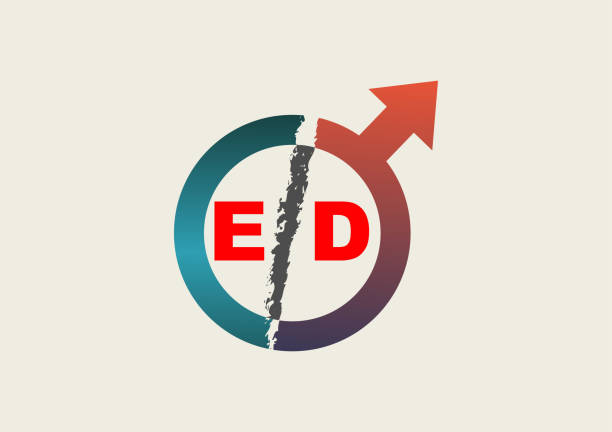Talking about erectile dysfunction (ED) with your partner may seem like a difficult and overwhelming task. It’s a sensitive topic that is often clouded by feelings of shame, embarrassment, and common misunderstandings. Many people find it hard to start this conversation due to the stigma surrounding sexual health. However, clear and open communication is key in any relationship, particularly when it comes to addressing a health concern like ED.
This guide will help you navigate the conversation with your partner in a comfortable and supportive way, so you can talk openly without awkwardness or embarrassment. We’ll share practical tips to make the discussion easier and help you both feel more at ease.
Why Talking About Erectile Dysfunction is Important
Erectile dysfunction (ED) impacts millions of men worldwide, yet it is often a topic that remains unspoken. ED isn’t just a physical health issue—it can affect emotional well-being, intimacy, and the overall dynamics of a relationship. When left unaddressed, it can cause misunderstandings, frustration, and even strain between partners. Here are several reasons why it’s important to talk openly about ED:
- Promotes Emotional Intimacy: Discussing ED openly can strengthen the emotional connection and trust between partners, helping both individuals feel more understood and supported.
- Reduces Anxiety: The more you communicate about the issue, the less anxiety and worry are tied to the condition, making it easier to cope together.
- Helps with Treatment: ED is often treatable with the right approach. Having an open conversation with your partner can encourage seeking professional help sooner, leading to effective solutions.
- Improves Your Relationship: Addressing ED together can strengthen your relationship. It fosters a sense of teamwork and mutual support, improving both intimacy and communication.
Talking openly about ED can make a significant difference in how both partners handle the condition and how it affects their relationship. By facing the issue together, you can reduce stress and improve the quality of your connection.

Understand the Emotional Impact of Erectile Dysfunction
Before having the conversation about erectile dysfunction (ED), it’s important to recognize the emotional impact it can have on your partner. Many men experience feelings of embarrassment, frustration, or anxiety related to their sexual health. They may worry about being judged or rejected by their partner, which can make the topic even harder to discuss.
Here are some common emotional impacts of ED on men:
- Shame: Men may feel ashamed, thinking they are no longer attractive or capable of meeting their partner’s needs.
- Insecurity: ED can lead to feelings of insecurity, causing men to question their masculinity or self-worth.
- Frustration: Many men feel frustrated because they can’t perform the way they once did, which can impact their sense of identity.
- Guilt: Some men may feel guilty about not being able to satisfy their partner, even though ED is a medical condition beyond their control.
By understanding and empathizing with these emotions, you can approach the conversation in a compassionate and non-judgmental way. This will create an open, supportive environment where both of you feel heard and understood.
How to Start the Conversation About ED
Starting a conversation about erectile dysfunction (ED) can feel overwhelming, but with careful planning and consideration, you can approach the topic gently and thoughtfully. The key is to create a safe space for open communication. Here’s how to start the conversation:
1. Pick the Right Time and Place
The timing and environment are crucial when discussing ED. Choose a moment when both of you are calm, relaxed, and can talk without interruptions. Avoid starting the conversation during moments of sexual frustration, as this could make the discussion feel more tense. Instead, pick a quiet, private time when you’re both in a comfortable setting and able to focus on each other without distractions. This helps set the tone for a more productive and empathetic conversation.
2. Use “I” Statements, Not “You” Statements
When discussing erectile dysfunction (ED), it’s important to avoid sounding accusatory or placing blame on your partner. Instead of saying something like, “You never perform like you used to,” try framing your thoughts with “I” statements, such as, “I’ve noticed that things have changed between us, and I think it’s important for us to talk openly about it.” Using “I” statements helps express your feelings without making your partner feel attacked or defensive. This approach encourages a more open and compassionate conversation, allowing both of you to feel heard and understood.
3. Be Compassionate and Non-Judgmental
When having a conversation about erectile dysfunction (ED), it’s important to approach your partner with empathy and patience. Show understanding by letting them know that ED is a common issue and there’s no shame in experiencing it. Reassure your partner that you love them for who they are, and that ED doesn’t affect the way you feel about your relationship. This will help your partner feel supported and less alone in facing this challenge. By showing compassion and avoiding judgment, you create a safe space for open communication and emotional connection.

How to Keep the Conversation Open and Honest
Once the conversation starts, it’s important to maintain an open dialogue. Here are some tips for keeping the conversation flowing:
1. Ask Questions and Listen Actively
Instead of jumping to conclusions or offering solutions immediately, ask your partner how they feel about the situation. Listen to their concerns, worries, and emotions. Active listening shows you care about their feelings and are willing to work together.
2. Avoid Blame and Pressure
It’s important not to put pressure on your partner. ED can be caused by physical, psychological, or emotional factors, and it’s not their fault. Don’t make them feel like they’re letting you down. Instead, focus on finding solutions together.
3. Share Your Own Feelings
Let your partner know how their condition has affected you emotionally, but avoid making the conversation about you. Use it as an opportunity to strengthen the emotional connection between you both.
4. Offer Support, Not Solutions
While it’s important to acknowledge that ED can be treated, don’t jump straight to offering solutions. Instead, express your support and willingness to seek treatment together. For example, you can say, “I’m here for you, and we can figure this out together.”
How to Handle the Emotional Aftermath
After the conversation, it’s natural for emotions to still be raw. Here’s how to keep things positive:
1. Reassure Your Partner
Even if your partner is still feeling embarrassed or upset, continue to reassure them. Let them know that ED doesn’t change your feelings for them and that you’re both in this together.
2. Plan Together for Next Steps
It’s important to discuss the next steps after the conversation. Consider visiting a doctor or seeking counseling if ED is caused by emotional or psychological factors. Offer your help in researching treatment options.
3. Maintain a Healthy Sex Life
If you both feel comfortable, explore other ways of being intimate while you work through ED. Emotional intimacy, physical touch, and affection can help maintain closeness and prevent the situation from creating more distance between you.
Treatments for Erectile Dysfunction
Many options are available for treating erectile dysfunction, depending on the underlying cause. Here are some common treatments:
- Lifestyle Changes: Diet, exercise, and stress management can improve ED.
- Medications: Prescription medications, such as Viagra or Cialis, can help with ED.
- Therapy: Counseling or therapy can address psychological causes of ED, such as anxiety or depression.
- Medical Devices: Devices such as vacuum pumps or penile implants can help in some cases.
It’s important to consult with a healthcare provider to determine the most suitable treatment for your partner.

The Role of a Healthcare Provider
Talking to a healthcare provider about erectile dysfunction (ED) is a crucial step in understanding and managing the condition. A doctor can help guide you through the process and provide valuable insights. Here’s how a healthcare provider can assist:
- Diagnose the Cause: A healthcare professional can determine whether ED is caused by physical health issues, such as diabetes or heart disease, or psychological factors like stress or anxiety.
- Provide Treatment: Depending on the cause of ED, a healthcare provider can recommend treatments, including medications, therapy, or lifestyle changes that may improve symptoms.
- Offer Support: In addition to physical treatment, a doctor can offer guidance on how to manage the emotional challenges of ED, helping both partners cope with the situation.
Seeking Help from a Specialist
If ED is affecting your relationship in ways that go beyond the physical symptoms, it may be beneficial to seek help from a therapist or counselor who specializes in sexual health. These specialists can provide support and strategies for addressing the emotional and relational aspects of ED. They can help both partners work through feelings of frustration, anxiety, or guilt, leading to a healthier and more understanding relationship.
Conclusion: Keep the Conversation Going
Talking about erectile dysfunction without embarrassment is possible when you approach the topic with empathy, patience, and a willingness to communicate openly. While it may feel awkward at first, addressing the issue honestly can lead to a stronger, more supportive relationship. ED is a common condition, and discussing it openly is a crucial step in understanding, healing, and maintaining a healthy relationship.
Remember, ED is treatable, and you don’t have to face it alone. Together, you and your partner can explore solutions and maintain emotional and physical intimacy.

